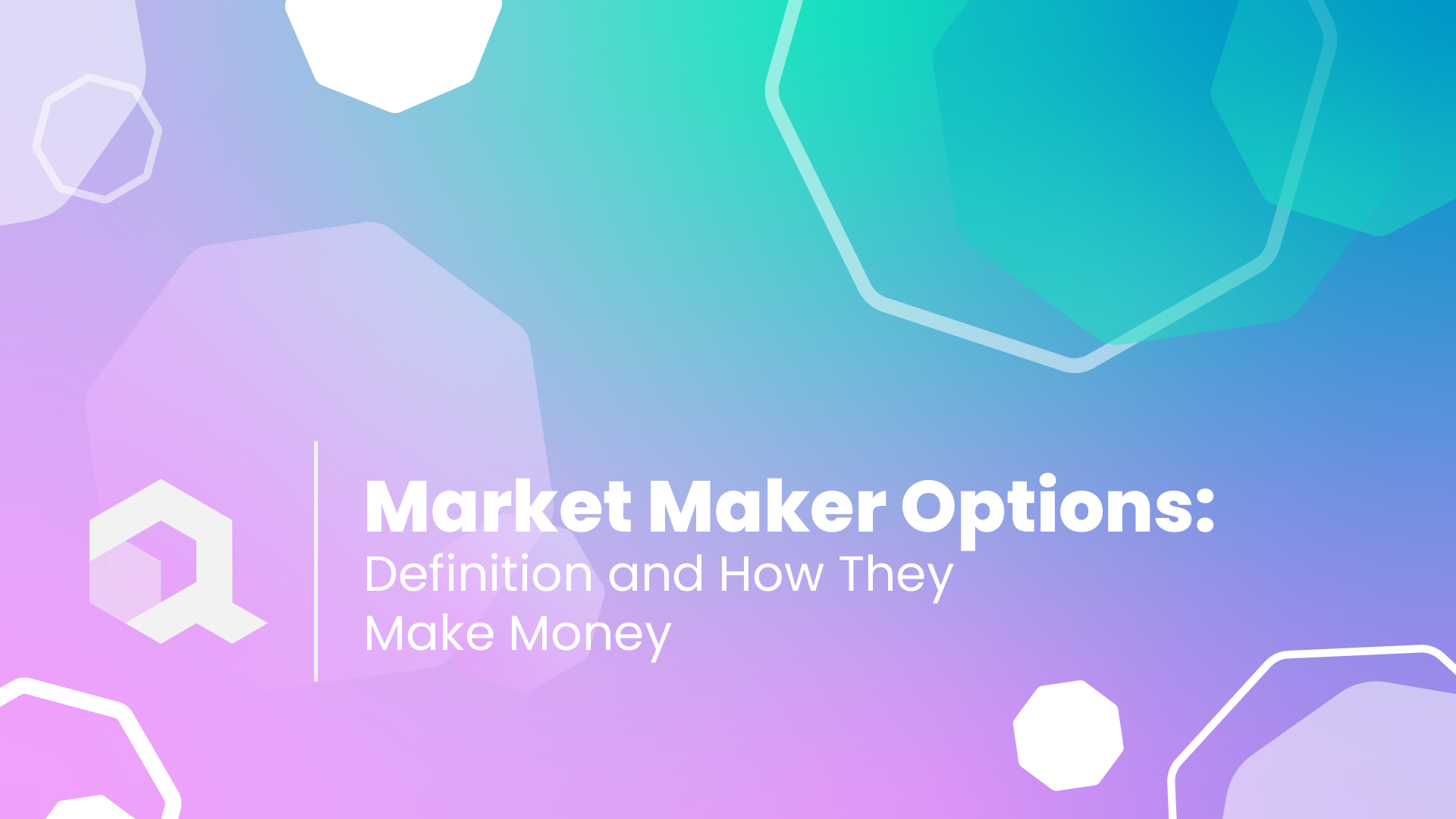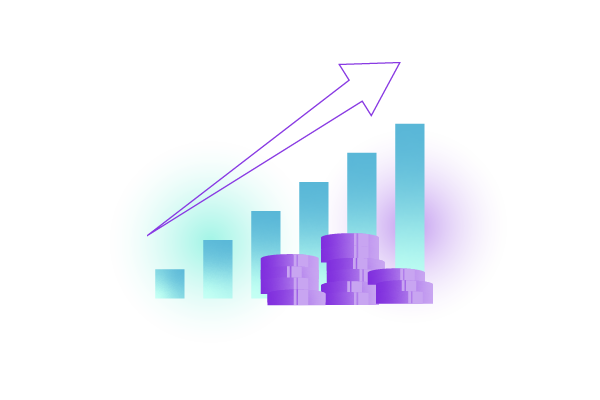
Market Maker Options are a crucial component of the financial market ecosystem. They play an indispensable role in maintaining liquidity and ensuring smooth transactions in the market. This article provides an in-depth understanding of Market Maker Options, their role, how they operate, and how they make profits.
Market Maker Options employ sophisticated strategies and specialized trading techniques to fulfill their essential function. They continuously quote bid and ask prices for a wide range of options, allowing investors to buy or sell contracts with ease. By actively participating in the market, Market Maker Options reduce bid-ask spreads, minimizing price discrepancies and increasing overall market efficiency. Furthermore, these market participants absorb excess supply or demand by adjusting their quotes in response to market conditions, acting as a stabilizing force.
Their profitability stems from the bid-ask spread, as well as the ability to anticipate market movements and manage risks effectively. By maintaining robust liquidity and facilitating seamless transactions, Market Maker Options contribute to a thriving and vibrant options market that benefits investors and market participants alike.
What are Market Maker Options?

Market Maker Options refer to firms or individuals who actively quote two-sided markets in a particular security by providing bids and offers, also known as asks, along with the market size of each. These entities are responsible for providing liquidity and depth to markets, profiting from the difference in the bid-ask spread. They may also make trades for their own accounts, known as principal trades.
Market Maker Options play a crucial role in ensuring the smooth functioning and efficiency of financial markets. By actively quoting bids and offers, they create a competitive environment that facilitates the buying and selling of securities. This constant presence of liquidity makes it easier for investors to execute their trades at fair prices, without experiencing significant price fluctuations or delays. Market makers are often required to maintain a certain level of inventory in the securities they trade, which further contributes to market stability.
Also Read: How to Choose the Best Crypto Liquidity Providers
In addition to providing liquidity, Market Maker Options also help in narrowing the bid-ask spread, which is the difference between the highest price a buyer is willing to pay (bid) and the lowest asking price set by a seller. By offering competitive bid and ask prices, market makers reduce the spread, making it more cost-effective for investors to trade. This tight spread not only benefits individual investors but also institutional investors and market participants who engage in larger trades, as it reduces their transaction costs.
Furthermore, Market Maker Options engage in principal trades, which involve trading for their own accounts. This practice allows them to take advantage of market opportunities and generate profits. By actively participating in the market, they contribute to the overall liquidity and efficiency of the securities they trade. Their expertise in identifying favorable trading opportunities and managing risk adds depth to the market, attracting a wider range of participants and fostering a more vibrant trading environment. Overall, Market Maker Options play a vital role in maintaining market stability, enhancing liquidity, and facilitating smooth trading operations.
Understanding Market Maker Options

Market makers are often brokerage houses that provide trading services for investors, ensuring financial markets remain liquid. They can also be individual traders, known as locals. Due to the substantial amount of securities required to handle the magnitude of transactions, most market makers primarily operate on behalf of prominent institutions.
Market makers display buy and sell quotations for a guaranteed number of shares. Once they receive an order from a buyer, they immediately sell off their position of shares from their own inventory, allowing them to complete the order. They must commit to continuously quoting prices at which they will buy (or bid for) and sell (or ask for) securities. Market makers must also quote the volume in which they’re willing to trade and the frequency of time they will quote at the best bid and best offer prices.
How Market Maker Options Earn Money

Market makers receive compensation for assuming the risk associated with holding assets, as the value of a security may decrease during the period between its acquisition and its subsequent sale to another buyer. They charge a spread on each security they cover. For instance, when an investor searches for a stock using an online brokerage firm, they might observe a bid price of $100 and an ask price of $100.05. By purchasing the stock for $100 and subsequently selling it to potential buyers for $100.05, brokers can generate significant daily profits through high-volume trading. Even though the spread is small, it can accumulate into substantial earnings. Here are three additional ways market maker options earn profits:
1. Spreads and Liquidity Provision
Market makers profit from the spreads they charge on each security they cover. By offering both a bid price (the price at which they are willing to buy) and an ask price (the price at which they are willing to sell), market makers provide liquidity to the market. The difference between the bid and ask prices, known as the spread, allows market makers to capture profits as they buy low and sell high.
2. High-Volume Trading Strategies
Market makers often engage in high-volume trading, taking advantage of the numerous transactions that occur in the market. With their ability to execute trades quickly and efficiently, market makers can capitalize on the small price discrepancies that arise throughout the day. By consistently trading in large volumes, these small profits can accumulate into significant daily earnings.
Also Read: Crypto Options Trading : The Dynamics of Market Making
3. Managing Risk and Hedging Strategies
Holding assets as a market maker involves assuming risks, as the value of securities can fluctuate. To mitigate these risks, market makers employ various hedging strategies. These strategies involve taking offsetting positions in related instruments or derivatives to reduce the overall exposure to market movements. By effectively managing their risks, market makers can enhance their profitability while ensuring the stability of their operations.
These strategies, combined with the market maker’s expertise and market knowledge, enable them to generate profits in the dynamic world of options trading.
Market Makers vs. Designated Market Makers (DMMs)

Numerous exchanges employ a market maker system where competing participants strive to establish the most favorable bid or offer. This competition enables them to attract incoming orders and secure business. But some entities, such as the New York Stock Exchange (NYSE), have a designated market maker (DMM) system instead. Designated Market Makers (DMMs) function as individual market makers who possess a monopoly over the order flow pertaining to a specific security or set of securities.
The designated market maker (DMM) system employed by entities like the New York Stock Exchange (NYSE) introduces a unique dynamic to the trading ecosystem. Unlike the competitive nature of market makers on other exchanges, DMMs hold a monopoly over the order flow in specific securities. This concentrated control allows DMMs to play a crucial role in maintaining market stability and liquidity. By closely monitoring and managing the supply and demand of their assigned securities, DMMs can mitigate volatility and ensure efficient execution of trades. Through their expertise and deep understanding of the assigned market, DMMs foster confidence among market participants, promoting fair and orderly trading for investors and facilitating the overall functioning of the exchange.
Conclusion
Market Maker Options play a vital role in the financial markets. They provide liquidity, ensure smooth transactions, and help maintain market stability. Understanding their role and how they operate can provide valuable insights for both new and experienced investors. By understanding Market Maker Options, investors can make more informed decisions and navigate the financial markets more effectively.
Additionally, Market Maker Options contribute to price discovery by constantly assessing and updating the bid and ask prices of options contracts based on market conditions and supply and demand dynamics. This continuous evaluation helps in narrowing the bid-ask spread and facilitating efficient price execution for traders. Moreover, Market Maker Options employ sophisticated trading strategies, including delta hedging and risk management techniques, to effectively manage their exposure and minimize potential losses.
Their active participation in the options market enhances overall market efficiency, attracting more participants and increasing trading volumes. As a result, Market Maker Options are instrumental in creating a vibrant and robust options market that benefits all market participants.

I'm Carina, a passionate crypto trader, analyst, and enthusiast. With years of experience in the thrilling world of cryptocurrency, I have dedicated my time to understanding the complexities and trends of this ever-evolving industry.
Through my expertise, I strive to empower individuals with the knowledge and tools they need to navigate the exciting realm of digital assets. Whether you're a seasoned investor or a curious beginner, I'm here to share valuable insights, practical tips, and comprehensive analyses to help you make informed decisions in the crypto space.
- Carinahttps://quantmatter.com/author/carina/
- Carinahttps://quantmatter.com/author/carina/
- Carinahttps://quantmatter.com/author/carina/
- Carinahttps://quantmatter.com/author/carina/
